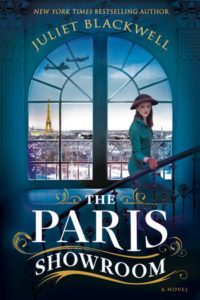Netflix’s popular, steamy high school drama Elite is set in a madly upscale Spanish high school where almost everyone is impossibly beautiful or handsome, impeccably dressed in various versions of the school uniform, and engaged in plots and counter-plots to hassle a classmate for one reason or another. It’s total fantasy with almost zero actual classroom scenes. Wild partying in lavish homes and clubs, heavy drinking, sex and striking attitudes take the place of education. Oh, and there’s a murder in that first season that triggers a police investigation reminiscent of Inside Man.
Watching the new Netflix movie Do Revenge, inspired by Strangers on the Train, you’ll see almost all of that plus hat tips to Clueless, Heathers, Cruel Intentions, and Mean Girls with less wit and a lot more viciousness masked as comedy. No murder, though.
The two teenage girls at the center of the movie enacting vengeance on each other’s tormentors perform nasty criminal acts which I guess we’re supposed to find funny. And they do it to an upbeat soundtrack wearing colorful outfits when they’re not in uniform. Even the scholarship girl who’s ashamed because her mother is a nurse and she doesn’t live in a mansion manages to look like a model in one scene after another. Perfect clothes and jewelry, perfect hair, perfect makeup.
Adding to the overall unreality is the fact that as one Chicago film critic pointed out, most of the leads are in their mid-to-late twenties and they definitely look it. And there are some unbelievable plot twists that seem dreamed up by someone who was stoned at the time.
But most egregiously, the writers update old anti-Semitic tropes: the movie’s villain is a Jew hater’s fever dream. He’s vengeful, super-wealthy, politically connected, psychopathic, soulless, manipulative and bent on destruction just because it’s sport to him. He’s even a sexual predator which is right out of the Nazi playbook. His identification is teased before the end when he starts going totally off the rails and we now very clearly see that this monster has been wearing a Star of David. In case you missed it early on. And even though it’s tiny, the camera keeps it central as he’s unmasked as a master manipulator and freaks out.
Oh, and before he does, he perversely uses a Yiddish word, kvell, the verb that expresses pride in something good, when he brags about all the misery he’s caused.
That’s totally gratuitous, and the bond the two female leads form after having savaged each other profoundly just adds to the generally sour fantasy. As they drive off at the end, maybe we’re meant to think of Romy and Michelle’s friendship, but they lack the charm and depth of those characters.
Do Revenge can be very funny in spots and has some good crisp dialogue, but as it got nastier by the minute, it felt as if the writers were more interested in indulging their bigotry and mining other people’s work than writing something truly original. What’s sadder is that not one major film critic has noted the ugliness at the core of this film.


